

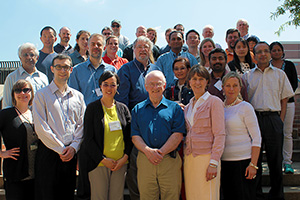 Welcome to the 1st Annual Workshop on Metabolomics. The course is jointly sponsored by the National Institute of General Medical Sciences (NIGMS) as part of the NIH Common Fund Metabolomics Initiative, and the Departments of Chemistry and Pharmacology and Toxicology at UAB.
Welcome to the 1st Annual Workshop on Metabolomics. The course is jointly sponsored by the National Institute of General Medical Sciences (NIGMS) as part of the NIH Common Fund Metabolomics Initiative, and the Departments of Chemistry and Pharmacology and Toxicology at UAB.
The themes in this first year of the workshop were
| Time | Topics & Speakers | Resources |
| 7:30-8:00 | Registration and Breakfast (Volker Hall, Room 302) |
|
| 8:00-8:15 | Introduction/format of workshop Stephen Barnes, PhD, Hemant Tiwari, PhD |
|
| 8:15-8:40 | Metabolism to metabolomics Stephen Barnes, PhD, UAB |
 (1.5Mb) Video |
| 8:45-9:10 | Experimental design in Metabolomics Hemant Tiwari, PhD, UAB |
 (627Kb) Video |
| 9:15-9:55 | Processing of samples Kathleen Stringer, PharmD, U Michigan |
 (1.1Mb) Video |
| 10:00-10:20 | Coffee break (Volker Hall, Room 302) | |
| 10:30-12 noon | Hands-on in the lab to collect samples (Volker Hall, Room 252) | |
| 12 noon-12:45 | Lunch (Volker Hall, Room 302) | |
| 1:30-2:10 | GC-MS, GC-GC, LC-MS Stephen Barnes, PhD, UAB |
 (1.0Mb) Video |
| 2:15-2:50 | NMR Natalie Serkova, PhD, UC-Denver |
 (941Kb) Video |
| 2:55-3:25 | Targeted metabolomics Olga Ilkayeva, PhD, Duke |
 (2.2Mb) Video |
| 3:30-4:00 | Coffee break (Volker Hall, Room 302) | |
| 4:00-5:00 | SWATH-MS and metabolomics Brigitte Simons, PhD, AB Sciex |
 (2.5Mb) Video |
| Time | Topics & Speakers | Resources |
| 7:45-8:15 | Breakfast (Volker Hall, Room 302) |
|
| 8:15-8:45 | Ethics of Omics Jeffrey A. Engler, PhD, UAB |
 (1.0Mb) Video |
| 9:00-11:30 | Hands-on collecting metabolomics data Group A go to McCallum 452 for on-site LC-MS training
|
|
| 11::45-12:45 pm | Lunch (Volker Hall, Room 250) | |
| 12:15-12:45 | Global and Translational metabolomics Stephen Barnes, PhD, UAB |
 (825Kb) Video |
| 1:00-3:45 | Hands-on section Group B go to McCallum 4th floor for on-site LC-MS training
|
|
| 3::15-3:45 | Break (Volker Hall, Room 302) | |
| 4:00-4:45 | Metabolomics meet genomics Hemant Tiwari, PhD, UAB (Volker Hall, Room 302) |
 (4.6Mb) Video |
| 6:30-9:00 | Workshop dinner (McWane Science Center) |
| Time | Topics & Speakers | Resources |
| 7:45-8:15 | Breakfast |
|
| 8:15-8:30 | Announcements plus question time | |
| 8:30-9:10 | Pre-processing of metabolomics data (LC-MS) Xiuxia Du, PhD, UNC Charlotte |
 (5.2Mb) Video |
| 9:15-9:55 | Pre-processing of metabolomics data (NMR) Natalie Serkova, PhD, UC-Denver |
 (1.6Mb) Video |
| 10:00-10:20 | Coffee | |
| 10:20-11:05 | Statistical analysis of GC- and LC-MS metabolomics data Xiuxia Du, PhD, UNC Charlotte |
 (1.5Mb) Video |
| 11:10-11:55 | Statistical analysis of NMR metabolomics data Natalie Serkova, PhD, UC-Denver |
 (3.4Mb) Video |
| 12 noon-1:00 | Lunch | |
| 12:20-12:50 | Lunch talk – Transomics software for metabolomics Mark Bennett, PhD, Non-Linear Dynamics |
 (1.3Mb) Video |
| 1:00-1:30 | Computing systems for metabolomics Sean Wilkinson, University of Alabama at Birmingham |
 (154Kb) Video |
| 1:35-2:10 | Novel Tools for “omics”-based Analysis of Complex
Mixtures; Application to a Investigation of the
Effect of Prolonged Glucose Stimulation on the
Lipid Profile of Mouse Heart Muscle John P. Shockcor, PhD, FRSC CChem, Bruker& Imperial College, London |
 (2.9Mb) Video |
| 2:10-5:00 | Hands-on section Analysis of LC-MS data Xiuxia Du, PhD, UNC Charlotte |
 (596Kb) |
| Time | Topics & Speakers | Resources |
| 7:45-8:15 | Breakfast |
|
| 8:15-8:30 | Announcements plus question time | |
| 9:15-9:55 | Hands-on Analysis of NMR data Natalie Serkova, PhD, UC-Denver |
 (1.2Mb) Video |
Nikolaos Psychogios, PhD, Dr. Robert Gerszten's lab at the Cardiovascular Research Center at Massachusetts General Hospital. |
Video |
|
| 10:00-10:20 | Coffee | |
| 10:20-12 noon | Hands-on Analysis of NMR data Kathleen Stringer, PharmD, U Michigan |
Video |
| 12 noon-1:00 | Lunch and course evaluations | |
| 1:00-1:25 | Pathway analysis Dean P. Jones,, PhD, Emory University |
 (2.9Mb) Video |
| 1:30-1:55 | Future of Metabolomics Stephen Barnes, PhD |
 (1.6Mb) Video |
| 2:00-3:00 | Group discussion of collected data | |
| 3:00-5:00 | Consultations with UAB personnel regarding future Experiments (optional) |

Dr. Barnes, Director of the Metabolomics Workshop, is Professor of Pharmacology and Toxicology and has secondary appointments in five other departments. He started his research career in the laboratory of A. T. (Tony) James, co-inventor of gas-liquid chromatography, studying fatty metabolism in green algae and did his PhD on the carbohydrate metabolism of the acellular slime mold Physarum polycephalum at Imperial College, University of London under the tutelage of Sir Ernst Boris Chain, 1945 Nobel Laureate for the discovery of penicillin. He began his long-standing interest in bile acid metabolism at the Royal Free Hospital with Dame Sheila Sherlock and Barbara Billing. After the winter of 1975 in Alan Hofmann’s lab at the Mayo Clinic in Rochester, he took up an offer to come to the University of Alabama at Birmingham (UAB) in 1977 where he has remained ever since. In the early 1980s he applied high field NMR using superconducting magnets to unravel the proton NMR spectrum of bile acids as well as to use pulse sequences to greatly simplify the process. In 1992 he took over the development of LC-mass spectrometry in biomedical research at UAB and was the Director of the UAB Comprehensive Cancer Center Mass Spectrometry Shared Facility from 1992 to 2009. In 2009 he was appointed as the Director of the Targeted Metabolomics and Proteomics Laboratory (TMPL). He also was the Associate Director of the Purdue-UAB Botanicals Center for Age-related Disease from 2000-2011 and the Director of the UAB Center for Nutrient-Gene Interaction from 2002-2010. These latter roles provided critical experience in experimental design, statistical analysis of –Omics data and the important role of the diet in determining the outcome of experimental models of chronic diseases.
More details about TMPL can be obtained at http://tmpl.uab.edu

Mark obtained his Bachelor of Science degree at the University of Wolverhampton, Graduating with an Honors degree in Biomedical Sciences in 1994. He specialized in human genetics during his final year, and went on to spend the following year working in the Human DNA laboratory at Hartland’s Hospital, Birmingham.
He joined Nonlinear Dynamics in 1996 as their first sales specialist, and went on to be their European sales manager in 1998. In 2000, he immigrated to North Carolina (USA) to set up Nonlinear USA Inc, a subsidiary of Nonlinear Dynamics, where he held the position of CEO for 3 years. In June 2003 Mark took up a duel role as General Manager for Asia Pacific and North America. Mark has set up much collaboration in US and Asia both commercial and academic, and has a wealth of experience in analyzing datasets in both Proteomics and Metabolomics fields.
Website: Nonlinear Dynamics
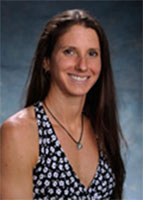
Krista Casazza obtained her PhD from Florida International University in 2006, where her research focused on dietary and physical activity education interventions in adolescents. She received a postdoctoral fellowship on a T32 training grant at the University of Alabama at Birmingham (UAB) later that year under the mentorship of Drs. Jose Fernandez and Barbara Gower. During her training Dr. Casazza competed for and received an intramural pilot feasibility grant as well grant support from the Thrasher Research fund to investigate the effects of macronutrient modification (carbohydrate in particular) on reproductive hormones, insulin dynamics and body composition during a weight loss intervention in peri-pubertal African American girls. The data gathered from these studies were used in the submission of an NIH/NIDDK K99/R00 Transition to Independence Award which Dr. Casazza received in 2009. Working with the pediatric population, Dr. Casazza’s research interests have evolved into understanding the resource partitioning during critical periods of growth and development with primary focus on the bone fat interface. In addition to the R00 study, she is currently conducting an investigation of the contribution of bone marrow adipose tissue accrual to the bone-fat interface and the metabolic effects of this relationship in young children. During here four years as a postdoctoral fellow, Dr. Casazza has published 44 papers, 3 book chapters, presented numerous abstracts and invited talks at national and local meetings. She was promoted to Assistant Professor at UAB in February, 2011.

Dr. Du received her Ph.D. in Systems Science and Mathematics from Washington University in St. Louis in 2005. She subsequently did a postdoc in Dr. Richard D. Smith's lab at the Pacific Northwest National Laboratory. Her postdoctoral research focused on development of computational algorithms for processing and analyzing mass spectrometry (MS)-based proteomics data. In 2008, Dr. Du joined the Department of Bioinformatics & Genomics at UNC-Charlotte as an assistant professor and expanded her research to include development of computational algorithms and visual analytics for MS-based metabolomics studies.
Web Site: http://www.du-lab.org

Dr. Engler is the Associate Dean for Academic Affairs in the UAB Graduate School and is the Director of the UAB PREP Scholars Program. He completed undergraduate studies in chemistry at the University of California, Santa Barbara (B.S. 1971) and graduate studies in biochemistry at the University of Wisconsin (Ph.D. in 1977). His postdoctoral studies at Cold Spring Harbor Laboratory in Long Island, New York led to a staff appointment there in 1980. Dr. Engler joined the faculty at UAB in 1982, and he is a Professor of Biochemistry and Molecular Genetics. He was an Editor of Gene from 1986 through 2008. Over the past 12 years he has focused on ethics education for graduate students. Using funds awarded by the Council of Graduate Schools and the National Science Foundation, he helped develop online ethics education modules on avoiding plagiarism and on whistle blowing (http://www.uab.edu/graduate/rcr/index.html); these modules are used in both undergraduate and graduate education. With new funding from the Council of Graduate Schools and the Office of Research Integrity at the Department of Health and Human Services, teaching assistants are being trained to include ethics education in their undergraduate and graduate classes. He also organizes periodic surveys of graduate students, postdoctoral fellows and graduate faculty, to assess their perceptions of ethical conduct in research.
TE-mail address: engler@uab.edu
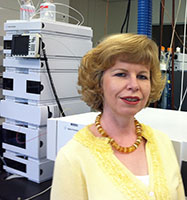
Dr. Ilkayeva is a Senior Research Scientist and Director of the Metabolomics Laboratory at Sarah W. Stedman Nutrition and Metabolism Center, Duke University Medical Center (http://stedman.mc.duke.edu). She received her PhD training in Cell Regulation from UT Southwestern Medical Center in Dallas. Her postdoctoral research at Duke University was directed at lipid metabolism and regulation of insulin secretion. As a research scientist at the Stedman Nutrition and Metabolism Center she has acquired experience both in targeted and non-targeted mass spectrometry analyses. Dr. Ilkayeva has been working on developing and validating several quantitative mass spectrometry methods that are being extensively used for metabolic profiling of various biological models. Since 2011 Dr. Ilkayeva has been overseeing the targeted platforms run by the Duke Metabolomics Laboratory which include high throughput analyses of amino acids, acylcarnitines, organic acids, acyl-CoAs, and ceramides.
E-mail address: olga.ilkayeva@duke.edu

Dr. Jones is a Professor in the Department of Medicine (Pulmonary Division) at Emory University, Atlanta, GA. He received a Ph.D in Biochemistry from Oregon Health Sciences Univ., Portland, in 1976. He studied nutritional biochemistry at Cornell University and molecular toxicology at the Karolinska Institute as a post-doctoral fellow. He joined Emory University as an Assistant Professor of Biochemistry in 1979, was subsequently promoted to Assoc. Prof in 1985 and Professor of Biochemistry in 1990. He became Professor of Medicine in 2003. His central research focus is on redox mechanisms of oxidative stress. He currently directs the Emory Clinical Biomarkers Laboratory, which is focused on oxidative stress biomarkers and applications of 1H-NMR spectroscopy and Fourier-transform mass spectrometry for high-throughput clinical metabolomic analyses of nutritional and environmental factors in human health and disease.
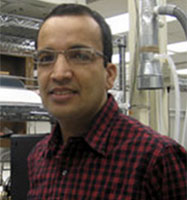
Dr. Prasain is an Assistant Professor of Pharmacology and Toxicology at UAB. He received his undergraduate and master’s training (Chemistry) at Tribhuvan University, Nepal and his Ph.D. at Toyama Medical & Pharmaceutical University, Japan. His expertise is in the use of NMR and LC-MS for the discovery and identification of natural products. He will be demonstrating the use of LC-MS methods for the analysis of metabolite classes.
Website: http://www.uab.edu/proteomics/massspec/personnel/prasain.php
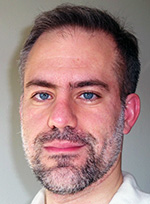
Dr. Psychogios received his PhD at the University of Ioannina Medical School in Greece in the field of clinical chemistry using 1H-NMR-based metabolomics to investigate kidney diseases. During his postdoctoral research he joined Dr. David Wishart's lab at the University of Alberta (2007-2010), where he worked in the Human Metabolome Project and had a leading role in the establishment of the Human Serum Metabolome Database. He worked there in a variety of projects; ranging from bovine, plant, human serum and urine metabolomics, to developing/testing metabolomics software and databases using NMR and GC/MS-based metabolomics. He later worked at Shriners Hospital for Children in Boston MA, where he got trained in molecular MR imaging and HRMAS (High Resolution Magic Angle Spinning) spectroscopy to assess different states of tissue pathology in experimental tissue and animal models. Since 2011, he is a research fellow at Dr. Robert Gerszten's lab at the Cardiovascular Research Center at Massachusetts General Hospital. Using LC-MS metabolomics in cell-based and animal systems relevant to cardiometabolic diseases, he is investigating functional roles of novel small molecules that have been identified in well-phenotyped human studies as biomarkers of disease pathogenesis.
Email: psychogi@nmr.mgh.harvard.edu
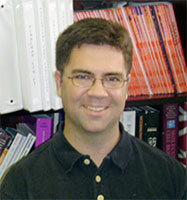
Dr. Renfrow is an Assistant Professor of Biochemistry and Molecular Genetics at UAB. He received his PhD training in Biochemistry at the University of Georgia. As a postgraduate fellow, he was trained by Dr. Alan Marshall at the National High Magnet Field Laboratory at Florida State University. His major research interests are in applying high-resolution mass spectrometry to explore solution structure of protein-ligand complexes with hydrogen-deuterium exchange and the study of oxidative and O-glycosylated posttranslational modifications. He is the Director of the Biomedical FT-ICR MS Laboratory at UAB.
Website: http://www.uab.edu/BiomedFTICR/renfrow/
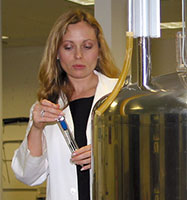
Dr. Serkova is Associate Professor of Anesthesiology, Radiology and Pharmacology at the University of Colorado Denver (UCD), Anschutz Medical Center. She is Director of the CU Cancer Center (UCCC)/ Colorado CTSA (CCTSI) Metabolomics and Imaging Cores which provide state-of-the-art services in the field of animal imaging (MRI/PET/CT) and translational/ clinical NMR metabolomics. Dr. Serkova own research interests are in the area of metabolic and functional markers of response to targeted therapies in cancer using ex vivo (NMR metabolomics) and in vivo imaging (MRS, MRI, PET) approaches. She has over 90 peer-reviewed publications in the area of translational and clinical metabolomics and metabolic imaging. Her PhD and post-doctoral training were in the field of magnetic resonance spectroscopy (ex vivo NMR and in vivo MRS) and its application in neuroscience and brain research. Since establishing the Colorado Metabolomics and Imaging Cores in 2006, Dr. Serkova has collaborated for over 75 UCD users; the Cores also have ongoing NMR Metabolomics collaborations with various group at the University of Michigan (Dr. Kathleen Stringer), UCSF, UCLA, University of Alaska and University of Alabama, just to mention a few. Dr. Serkova’ metabolomics expertise is in the area of quantitative multinuclear NMR metabolomics and optimization of standardized operating procedures (SOPs) for human (and animal) sample collections and processing (body fluids, tissue and cell extracts). In the next year, the Core will also introduce the magic-angle-spinning NMR technology for real-time non-invasive metabolic analysis on tissue biopsies.
Please follow the link to assess UCCC/CCTSI Metabolomics and Imaging Core website: UCCC/CCTSI Metabolomics and Imaging Core website.
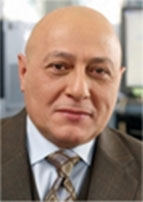
Dr. Shockcor is the Director of Strategic Operations, Pharmaceutical and Life Sciences, Waters Corp. and Professor, Dept. Of Surgery and Cancer, Imperial College, London, UK and Visiting Fellow, Dept. of Biochemistry, University of Cambridge, UK.
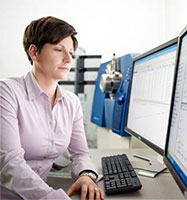
Dr. Brigitte Simons is a senior applications scientist at AB SCIEX in Toronto, specializing in lipid-protein profiling using time-of-flight mass spectrometry. Prior to working at AB SCIEX, Brigitte received her Ph.D. in Chemical Biology at the University of Ottawa. She then completed two research fellowships at the Centre for Biologics Research at Health Canada and the National Institute of Heart Lung and Blood in Bethesda MD.
E-mail address: Brigitte.simons@absciex.com
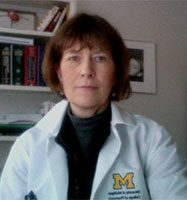
Dr. Stringer is professor of clinical pharmacy at the College of Pharmacy, University of Michigan, in Ann Arbor, Michigan. She is also an affiliate member in the Department of Computational Medicine and Informatics and a member of the University of Michigan’s Cancer Center. Dr. Stringer received her PharmD from the University of Michigan, completed a residency in clinical pharmacy at the University of Illinois Chicago and did her post-doctoral research training at the University of Buffalo. Until 2007, Dr. Stringer served on the faculty of the School of Pharmacy, University of Colorado Health Sciences Center (CU), Denver, Colorado. That is where her work in metabolomics began in collaboration with Dr. Natalie Serkova. Since leaving CU, Dr. Stringer metabolomics studies have translated to the clinic and are aimed at identifying metabolites associated with sepsis and acute lung injury. In particular, she is applying metabolomics to both clinical and experimental models to search for potential candidate biomarkers of disease severity and drug target opportunities in these critical illnesses. She is accomplishing this by using complementary nuclear magnetic resonance (NMR) and liquid chromatography (LC)- mass spectrometry (MS) platforms and computational analyses.
Website: http://sitemaker.umich.edu/stringek/home
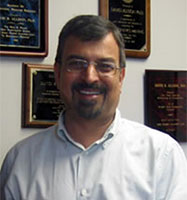
Dr. Tiwari is the Co-Director of the Metabolomics Workshop. He received his Ph.D. in mathematics from the University of Notre Dame, South Bend, Indiana. While being a faculty at the University of Maine, he got interested in statistical genetics, and completed a post-doctoral fellowship in Statistical Genetics under Prof. Robert Elston in the Department of Biometry and Genetics at Louisiana State University Medical Center, New Orleans and at the Case Western Reserve University in Cleveland. Subsequently, he worked as a faculty member in the Department of Epidemiology and Biostatistics at Case Western Reserve University. In January 2002, he joined UAB as a faculty in the Department of Biostatistics (Section on Statistical Genetics). His research interests include Genetic Linkage Analysis, Disequilibrium Mapping, Population Genetics, Molecular Evolution, Bioinformatics, and Genetics of Infectious Diseases. Currently, he is involved in gene mapping studies of epilepsy, SLE, phonological disorders, and dental traits. He is the Head of the Section on Statistical Genetics, the William “Student” Sealy Gosset Professor, Director of the Biostatistics Pre-Doctoral NHLBI Training Program and Director of the Post-Doctoral NHLBI Training Program in Statistical Genetics. He also is the Director of the NIGMS-funded National Short Course in Statistical Genetics and Genomics.
Website: http://www.soph.uab.edu/ssg/people/tiwari

Sean earned his Bachelor of Arts degree from Rice University in 2008 with a triple-major in Computational and Applied Mathematics, Statistics, and Mathematics. At the University of Texas at Austin, where he was a PhD student and fellowship recipient in the Institute for Computational Engineering and Sciences, exposure to the field of uncertainty quantification inspired him to leave the program to pursue dedicated statistical training. As a PhD student in Statistics at Rice University, he joined the lab of Jonas Almeida, who was then at the MD Anderson Cancer Center; they have since joined the Pathology Department at the University of Alabama at Birmingham. Sean is currently a PhD student in Biomedical Engineering, and his research into distributed computing combines his unique experiences in high performance computing and statistics with cloud computing and bioinformatics.
Email address: Wilkinson@uab.edu
Residence Inn Birmingham Downtown at UAB
Phone: 205- 521-7397
Studio Suite: $122.00 per night
We have a group rate at the Residence Inn Marriot of $122/night plus taxes. The rate is guaranteed as long as you book by July 5th. You will need to mention you are attending the UAB Metabolomics Workshop.
UAB METABOLOMICS WORKSHOP 2013
The Hotel Highland: 1023 20th St S Birmingham, AL 35205, Phone 205-933-9555
Radisson Hotel / Double Tree: 808 20th St. South Birmingham, AL 35202, Phone 205-933-9000
Courtyard by Marriott Birmingham: 1820 5th Ave S Birmingham, AL 35233, Phone 205- 254-0004
To apply, please perform the following tasks via our website. Please note that if your materials (curriculum vitae, proposal, and letters of recommendation) exceed a 100KB limit, you will need to send them by e-mail jspears@uab.edu
Attendance is limited to 20 for this course. Please apply prior to Fri 5/24/2013. Accepted applicants will be notified by Mon 6/4/2013, with registration fee due by June 22nd.
Women, members of underrepresented minority groups, and individuals with disabilities are strongly encouraged to apply.
Upon Acceptance, the fee for attendees is:
$750 - academic, government, and non-profit organizations
$2,600 - for-profit organizations
The fee includes course tuition and syllabus, and refreshment breaks (but not hotel accommodation or travel for out-of-town attendees). The fee will be payable upon acceptance into the course.
Need more information? Contact Jennifer Spears at 205.934.4579 or jspears@uab.edu
| Stephen Barnes 205 934-7117 sbarnes@uab.edu |
Jennifer Spears 205 934-4579 jspears@uab.edu |
Volker Hall - 1670 University Blvd
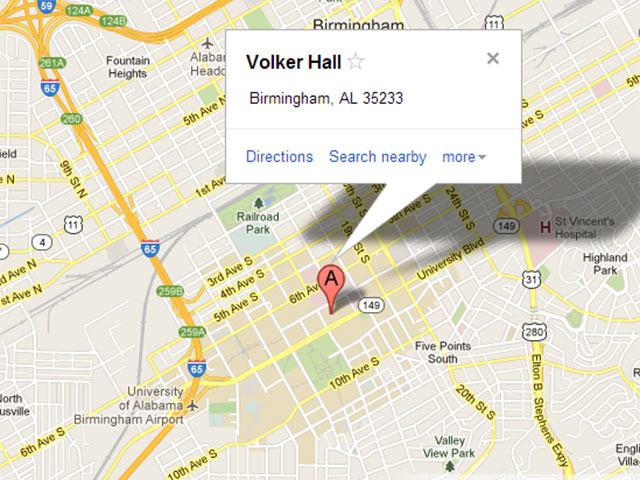
Chemistry Building - 901 14th Street South

McCallum Basic Health Sciences Bldg - 1918 University Blvd
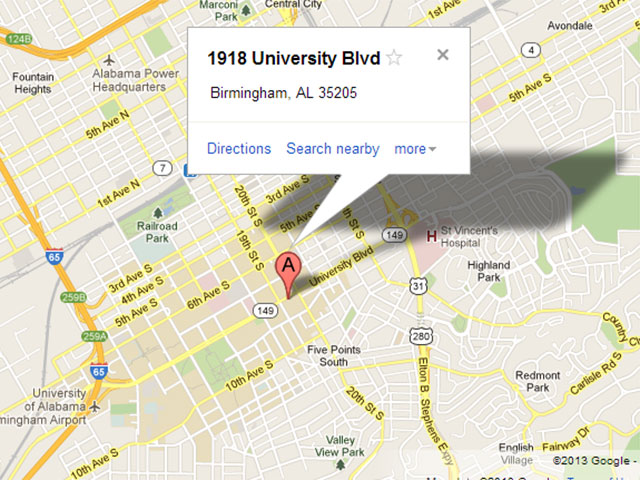
The primary support for this workshop comes from a grant from the National Institute for the General Medical Sciences (R25 GM103798-01). We are also indebted to the Departments of Chemistry and Pharmacology and Toxicology and the UAB School of Medicine for use of laboratory, and computing space.
In addition, the following Centers at UAB have provided support for this workshop and the 2012 UAB Metabolomics Symposium:
We also acknowledge the unrestricted financial and material support from the following companies: